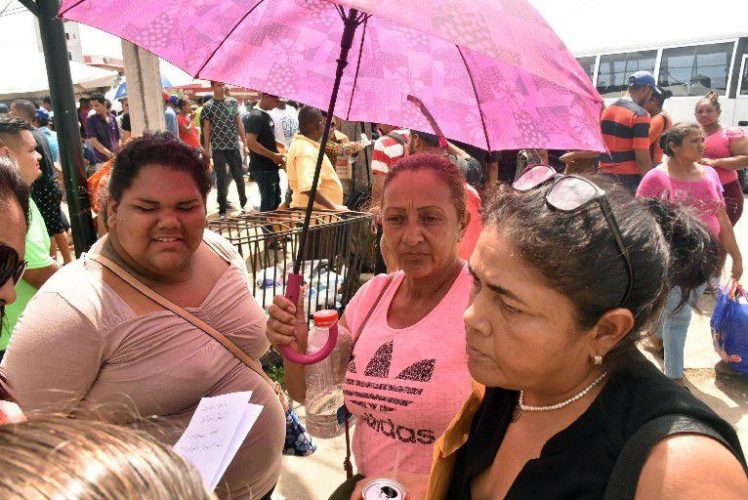(Trinidad Express) Venezuelan school teacher and desperate migrant Isabeth Moren, has a message for the women of Trinidad and Tobago.
“We did not come here to take your husbands,” she said.
Moreno, who also has a radio programme in her homeland, said she had fled a country plagued by a worsening economic and political crisis.
And she was simply seeking a better life.
Standing in line at the migrant registration centre at Achievors Banquet Hall in San Fernando on Friday, Moreno said she was disappointed in the way Trinidadian women treated her kind.
“We are insulted and degraded. I am a school teacher, my friend here is a doctor. Not every single Venezuelan woman you see is here for prostitution,” she said.
Moreno, 50, arrived in Trinidad two months ago and has secured a job as a waitress.
“But the men in Trinidad thinks we are here for sex. That is not right. In many instances we have men coming into our bedrooms in our apartments asking for sex. Some of them ask for massages. That is wrong. We are not here for that. It is unfair that we have to be degraded like this,” she said.
Moreno said she wanted to return to her homeland and be reunited with her family. “My country is beautiful. We don’t want to live here. We want to be allowed to stay and work and someday return home,” she said.
Another woman, Greisbel Dominguez, also appealed for Trinidadians to have respect for the women of Venezuela.
Dominguez, 27, said she was thankful to all those who delivered food to the Venezuelans in recent weeks.
“But I hope this hospitality continues after registration ends. I want them to know that the Venezuelans are not here to take away anything from their country. When we see other nationalities in our country we never humiliate them. We offer them a friendly hand,” she said.
At the migrant registration centre, hundreds of women stood in line, their faces gaunt, carrying little more than a backpack.
Many of the women cradled tiny babies, some covered in rashes and insect bites.
The Express spoke to a woman, who could speak little English.
She said, “We are being exploited here. Most of the women who come to Trinidad are professionals back home. Yes, there are some women who chose prostitution as a means to make money. But many of us are just little for a means of survival.”
Families have been separated, she said, in a country ripped apart by displacement, starvation and torment.
“In Trinidad, the conditions are far from perfect, but at least we are safer and more stable,” the five-month pregnant woman said.
The 28-year-old woman said in her homeland the health care had all but dissolved.
She said children were dying of malaria and hepatitis. Many children, she said, have been orphaned as parents go out in search of employment.
